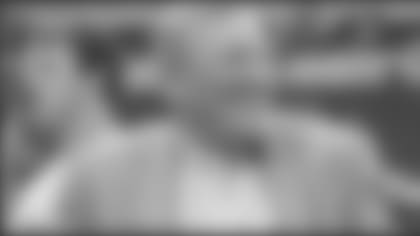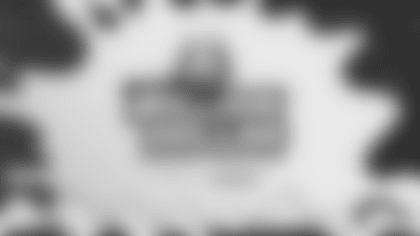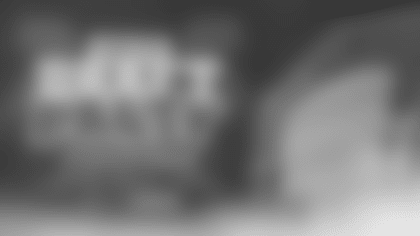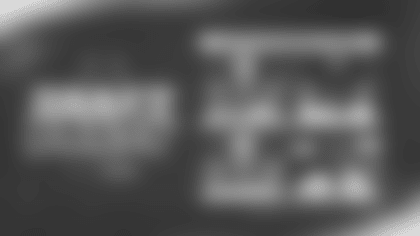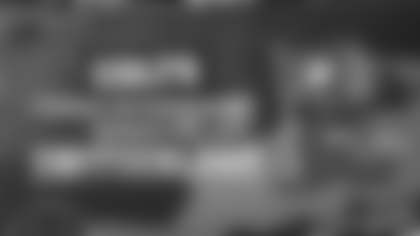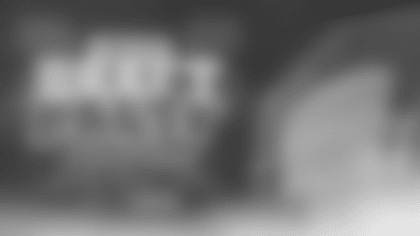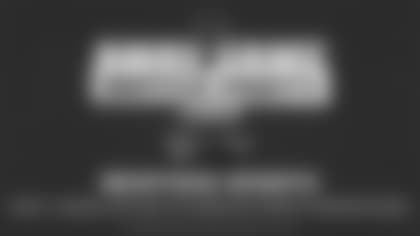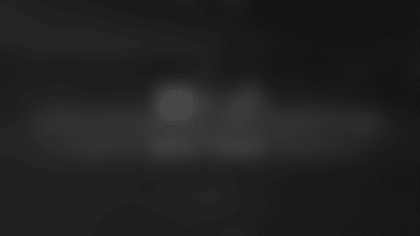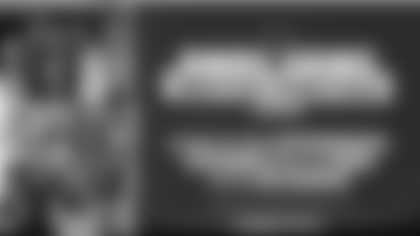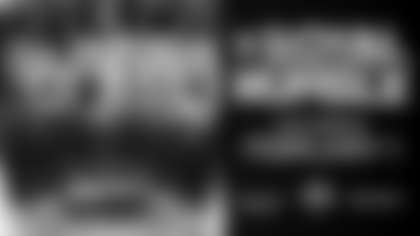Bill Polian, in his 12th season as Colts president, has a resume unique in the NFL. One of two men to win NFL Executive of the Year five times, Polian in the 1980s built the Buffalo Bills into a four-time Super Bowl participant. In the mid-1990s, he built the expansion Carolina Panthers into a team that made the NFC Championship Game in its second season, 1996. Since joining Indianapolis in 1998, he built the Colts from a 3-13 team in 1997 and 1998 into one that has made the playoffs 10 of the last 11 seasons, including an AFC Championship Game appearance after the 2003 and 2006 seasons, AFC South titles in 2003, 2004, 2005, 2006 and 2007 and a Super Bowl championship following the 2006 season. Each week during the season, in The Polian Corner, Polian and Colts.com will discuss issues pertinent to the Colts and the rest of the NFL.
Question: A 14-12 victory over the Jacksonville Jaguars Sunday in the 2009 regular-season opener. Looking back, a good way to start the season . . .
Answer: We feel really good about the way we played Sunday in the kicking game and on defense. We have a fair amount of work to do on offense, but that's all to the good. Coaches and administrators love these kinds of games. You get a 'W,' but there is plenty enough on the tape to correct. No one's in danger of getting a big head because of the way we played Sunday, but we won and we won in a fashion in which we have not won around here against the Jaguars in quite some time. We won on defense, and we won in the kicking game. So, that's very gratifying.
Q: What were your impressions looking at the tape?
A: We recognized what some of the problems in the running game were. Those are hard to see even from the press level during the ballgame. Essentially, they're somewhat systemic. When you play an opening game, particularly against a coordinator you have not worked against before, you really don't have a game plan, because they don't show you very much in the preseason. It's pretty clear they were preparing a long time for this ball game, as they should. They threw some things at us that made things tough for us offensively, which we can correct and we can handle with no difficulty at all. But if you haven't prepared for them you don't have the antidote exactly handy at the time. We did a better job in the second half. The turnovers, obviously, you do not want and we don't want under almost any circumstances. To some degree, it's understandable on the intercepted (first-quarter) pass (in the end zone), for example, they traditionally have played run on the goal line. They eschewed that and were playing pass totally. They essentially had (Colts wide receiver) Reggie Wayne doubled. That's tough to see on the goal line, but those things you see and get corrected and move on.
Q: What were your impressions or Colts running backs Donald Brown and Joseph Addai?
A: They both had some runs that were very good that show you what they're capable of, and then we had some that weren't so good – mainly, because we didn't get them blocked up as well as we should have – or, in some cases, it probably should have gone in a different direction. By and large, we'll be fine with that. We'll get it corrected. There's no need to worry about it. The gratifying thing, the thing that's exciting, is we won in the kicking game and we won on defense. We won pretty decisively on defense against a really good opponent that has banged us around quite a bit in years past. (Defensive tackle Antonio) "Mookie" Johnson deserves a game ball. Man, he played some football game among all of the guys on defense who played exceptionally well. Mookie really stood out. He was really something.
Q: To have that happen without Ed Johnson in the lineup – that was big, too.
A: (Defensive tackle) Dan Muir did a great job when he was in there, and (defensive tackle) Eric Foster did a great job when he was in there. It was a hot day and you'd like to be able to give some guys some rest, but Mookie was out of this world. If he can keep that up and we have Ed to bring back this coming week and be able to get him into the rotation – we'll be in good shape. It tells us that what we saw (in the preseason) against Philadelphia – another big-offensive line, power-running team – was not a mirage. We did well against Philadelphia and we did that pretty much (Sunday). Anytime you hold (Jaguars running back Maurice) Jones-Drew under 100 yards, you're doing a heck of a job. He has great moves. He has great balance. He has incredible power after contact and just the heart of a warrior – boy, does he do a great job. To hold him under 100 (yards) is a great, great achievement. Our guys earned everything they got on the defensive side. Our blitz package worked well. We still did a good job rushing the passer. Of course, they're playing with two rookie tackles and that's understandable, too. Those guys are going to be good players. It's just tough going against (Colts defensive end Dwight) Freeney) and (Robert) Mathis in your maiden outing in the National Football League.
Shouldn't that be illegal?
A: (Laughing) No, I don't think so.
Q: Is there a way to practice against Freeney's spin move?
A: Not really. You have to see it.
Q: They feel (rookie left tackle) Eugene Monroe will be around a while . . .
A: They're absolutely right. He's going to be a fine player.
Q: Is it fair to say you've only seen the tip of the iceberg from the Colts defensively?
A: I think you have to, first of all, give (Colts defensive coordinator) Larry Coyer great credit. He called a magnificent game. We have a lot in the package, and he used what we had at the right time at the right place in the right fashion. He didn't get a game ball, but in my opinion, he deserves it, because he called a heck of a game. He adjusted very quickly to what they were doing, which is essentially the screen-draw game, which they haven't shown us a heck of a lot before. They had been a power-running team, basically, and a boot team. They had the lead draw with Jones-Drew in nickel situations, but not nearly as many or as varied screens as they showed. Larry got that adjusted right away and really did a great job. We'll get better defensively. Don't forget: (Rookie cornerback) Jerraud Powers is playing his first game and boy, did he step up and perform well. (Veteran cornerback) Kelvin (Hayden) still had some rust to knock off because of the injury, because of the preseason. (Nickel back) Marlin (Jackson) still has a ways to go. (Safety) Melvin Bullitt played fine and (safety) Antoine (Bethea) played, as usual, a very fine football game. Clint Session did a good job at 'Will' (weakside linebacker) for the first time. Ed gets his first chance this week and Mookie did a terrific job. Dan Muir, that's his first extended playing time so, yes, they're going to get better. No question about that.
Q: The players seem to really enjoy the new approach on defense . . .
A: They're sold on the system. They like what they're doing. It's new. It's exciting. It gives them new things to do. It gives them more chances to make plays. It gives them more opportunity to take advantage of their strength and the opponent's weakness, so it gives us another weapon. And Larry deploys it so strategically well. He really does a good job with that. That's not to be overlooked. You can have all the blitzes in the world, and they can be the best-designed blitzes in the world. If you don't call them at the right time against the right formations, they're useless. You get some coordinators who get off the bus blitzing and they don't care. They don't care what the offense gives them – they're going to keep coming and coming. I think of my friend, (Green Bay Packers defensive coordinator) Dom Capers, who is exactly like Larry. Someone mentioned on the telecast (of the Chicago Bears-Green Bay Packers) game (Sunday), 'He knows exactly when to dial it up. He knows exactly what your tendencies are and what your weaknesses are and where he can take advantage of it and the kinds of matchups he creates.' That's the value of it – not the fact that you can draw Xs and Os on a card, but the fact that you know when to deploy it and against whom.
Q: Can you address what you know about the injury to WR-Anthony Gonzalez?
A: We know that there are some sprained ligaments and we know it isn't year-ending. I'll probably know a little more in a couple of hours when we finish our medical meeting. That's what I know right now. The fact that it's not season-ending is a good thing. We'll try to get a pretty thorough diagnosis and a prognosis as soon as we can.
Q: Non-contact?
A: I don't know. It appeared that way, but it may have happened on a previous play when he was blocking.
Q: It looked like the sun was an issue at times during the game Sunday . . .
A: The sun was a factor Sunday with the roof open. (Colts cornerback/returner) T.J. Rushing got poked in the eye early in the game. It may well be that that was bothering him. I spoke to him after the game. and he said his eye was bothering him. But I don't know that that was necessarily the case on the play (on which he shielded his eyes). He had lost the ball in the sun – a punt in the sun – in the pre-game. So, we were somewhat concerned about it. It got exacerbated by the poke in the eye. I don't know that there's a whole heck of a lot you can do about that. If a player has eye problems as (former Colts running back) Edgerrin James did, you can petition to get him in an eye shade. We might do that with T.J. That's just common sense, but otherwise, you have to get adjusted to it.
Q: It seemed there was shade provided on the sideline . . .
A: Yes. You're allowed to have shades as long as they're not permanent structures that don't block the fans' view. We had actually used them in Jacksonville some years before. It created a bit of a furor, but they became permanently legal last year, so we used them and it worked OK.
Q: How will you prepare for back-to-back prime-time road games coming up?
A: First of all, road trips in our sport are not lengthy. You leave here the day before the game and you return the day or night of the game or the morning following the game if it's a night game, or a game on the West Coast, as is the case with Arizona (in two weeks). This is a tough road stretch. The schedule-maker didn't do us a favor with this one, because it's Monday Night, so we will get home in the wee hours of the morning – probably four or five in the morning Tuesday – then we will have to travel to Phoenix the following Saturday, and we'll get home again about two or three in the morning on Monday. Those are tough on your constitution, especially the older guys, like (Voice of the Colts) Bob (Lamey) and I.
Q: Do you sleep on the plane?
A: I try to, but not post-game – almost never. We do the same thing in game preparation from last Tuesday when we began to prepare for Jacksonville – hopefully, until the Super Bowl. We never change. Monday is a very light day. The players come in and watch the film of the previous day's game. Tuesday is an off day. There will be many players who come in and lift weights. A good portion of them come in and look at tape of the opposition to try and get a jump on the week. Wednesday is a heavy practice day – usually in pads. Thursday is a lighter day. We take the pads off of them and they wear what we call shells – shorts and shoulder pads and a jersey and helmet. Friday is a very light day. We go out with no pads – just a helmet, jersey and shorts. We polish up the game plan – short-yardage, goal-line, two-minute. Saturday is a walkthrough and we leave here again on a plane and go play the game. That's our preparation for the next hopefully 20 weeks. Next week, of course, is a short week. There will be a day off, but we have one less practice day because of the Monday Night game, then to get two road night games is really tough, but when you're a good team, that's the way it is.
Q: With Gonzalez potentially out, what are the chances of pursuing a veteran receiver such as David Tyree or Amani Toomer?
A: We could add a veteran receiver. We'll talk about that tonight and tomorrow. I don't think the salary cap is of any consequence with any of the veteran receivers that are out there. They're not going to command a lot of money. One thing we don't do is pay attention to names. Just because a guy has been a good player and has a good name means nothing. We'll sit down with our pro personnel folks – Chris (Polian) and (Pro Scout) Kevin Rogers and others – and we'll go through who we think the best veteran wide receiver might be, the guy who best fits our system, the guy who can do the most for us. If we choose to bring one in, that's the guy we'll bring in. Now, that's predicated largely on how long Gonzo may be out. If he's gone for four weeks or more, then the likelihood is we will make a change. If he's gone for four weeks or less, there would probably not be the sense of urgency to make a change that might otherwise exist. He's not a tremendously fast-healer, so that may enter into the equation. Some guys get back a lot quicker than the doctors may say. Others are right on time. Receivers traditionally stay with the time prognosis because so much of what they do is predicated on speed and their legs and what have you. Linemen can get back a little bit quicker. Those are all the considerations that we'll take into account, and we'll see what we do. But names don't really mean anything to us. We're looking for the best player.
Q: Can you talk about not picking up the first down on 3rd- and 4th- and 1 late in the game?
A: It's something we need to improve. We needed to end the game in that situation. The fact that we converted some short yardage previously doesn't negate the fact that we needed to end the game in that situation. That was the third football game I'd seen over the weekend where people couldn't end the game. On other occasions, teams ended up losing it. The two college games on Saturday ended the same way and on the wrong side for the teams that couldn't convert in four-minute (offense). Of course, last year in San Diego (in the postseason) we had difficulty with four-minute (offense). It's a question largely of getting movement on the line of scrimmage, of getting it blocked properly, making sure the back enters with a full head of steam. I will say this: Donald (Brown) ran really hard. I thought he had made it from where I was seated. Then, on the tape I thought he had made it, but from ground level (Colts Head Coach) Jim (Caldwell) said he wasn't so sure. That may have been the look the referee had. I'll tell you this: We didn't get a lot of push. As a result, there were a lot of people screening the linesman out. I thought Donald was going to come out of the back end to be very truthful with you, but the nose tackle came crashing down. If it was short, it was short by less than it was marked, but so what? The bottom line is you have to come out the back end and you have to convert that, so that's something we have to be better at.
Q: What is the rule regarding an offensive player not being able to advance a fumble?
A: That is the fourth-down "Snake" Stabler rule – so called. When you fumble the ball on fourth down and you fumble it forward, the only player on the offensive team who can recover the ball is the man who fumbled it. That is because many years ago on fourth down, (Oakland Raiders quarterback Kenny) "Snake" Stabler essentially rolled the ball forward and (tight end) Dave Casper, I believe fell on it. It was a touchdown that beat San Diego on the game's final play. The NFL realized it was a miscarriage of justice and changed the rule. That's a rule that only applies on fourth down.
Q: What are the chances of the Colts re-signing wide receiver Marvin Harrison?
A: He has not had any training camp, and it really is counterproductive to try to bring a player in who has not had any training camp and not had any offseason. That's especially true of someone Marvin's age. You're probably inviting injury upon injury. If we were going to add someone, it would be someone who has been in training camp and possibly is a little younger than Marvin.
Q: It seems like safety Bob Sanders is always hurt and always missing time? When does it end?
A: Hopefully, it doesn't end his career, that's number one. He has averaged about 12 games a year for the last three years. I think Bob is very close to getting back. I'm not going to put a timetable on it. The bottom line is he's making great progress and he's working very hard at it. Let me say this: With respect to all injuries, no player wants to be hurt. No player enjoys being out. No player enjoys being hurt. Very few players enjoy rehabilitation and no player enjoys surgery, so this is a very rocky road for any player who is injured. At the very least, they make their living with their bodies, so when they're injured, their livelihoods are threatened. If you had the unfortunate circumstance of having your job threatened or unfortunately have lost your job, you know how badly that feels and how badly that affects you and your family, so no player wants to go through this, and they do not go through it willingly. Many, quite frankly, leave the game earlier than perhaps they should, because they do not want to go through the pain and suffering both physical and mental that comes with injury. For fans to be frustrated because the player's not there is, to some degree, understandable, but it's not intellectually correct. The player is suffering a heck of a lot more than anyone else, and he wants to be out there way more than you want him out there. The next question becomes, 'If Bob Sanders were only to play 12 games a year for however many years he has left in his career, would you take that?' I'd bet 90 percent of folks who come to Lucas Oil Stadium who call themselves Colts fans would take that. He is an impact player. He's a guy who changes games. He's a guy who energizes everybody around him. And by the way, the only player in the league who is close to him – Troy Polamalu – is also hurt. Troy has been hurt in the past. The reason these guys get hurt is because they are so explosive. They give so much of their bodies. They play so hard. They are susceptible to injury. You have to anticipate they're going to be injured at some point in time. I think the overwhelming majority of Colts fans would take 12 or 13 games a year from Bob Sanders for the rest of his career. Hopefully, there will be 16. He'll be back soon. We'll welcome him back. No one wants him back more than we do in this building, and no one wants to come back any more than Bob Sanders.
Q: Offensive guard Ryan Lilja missed last season with a knee injury and played Sunday. There may not have been a happier guy on the field . . .
A: There surely was not. He went through a long, hard climb – a lot of difficulty in diagnosing his original injury, two surgeries, long, difficult rehab from the surgeries. We believed Ryan Lilja could be and will be a very good player. He was before he got hurt. We stayed with him and he, more importantly, stayed with it. He made it back, and that's a heart-warming story. I realize fans get frustrated, but nobody wants to be back more than these players, and no one enjoys being hurt less than the players.
Q: Any thoughts of using multiple backs on short-yardage?
A: Actually, we do. We used Eric Foster as the fullback Sunday, and he's about 275 or 280 pounds. He did a great job blocking. He was terrific. He can adjust on the fly. He's athletic. He can pick guys up and he can really pound in there. We got the edge blocked very, very well Sunday by Eric, so that's not a problem. Some of the leakage and some of the push might have been the problem and we'll get that straightened out.
Q: The Miami Dolphins are next. They lost to Atlanta on Sunday, and people around Miami are calling for changes . . .
A: First of all, they're changing nothing that (Executive Vice President Football Operations) Bill Parcells doesn't want to change. I can assure you of that. Anyone that's bleating in the wind about change – it's falling on deaf ears. Second of all, I think Bill has done a phenomenal job in building a football team to the blueprint he has established, and that (Head Coach) Tony Sparano and (General Manager) Jeff Ireland have bought into. They do things the way we do things. They have a blueprint. They go about it. They don't deviate from it. They're not bothered by the slings and arrows of criticism. They just keep their noses to the grindstone, and they keep doing their jobs. I have not seen all of the tape yet. They had a difficult game Sunday against a very good Atlanta Falcons team on the road. That's understandable. They are a very, very good running football team. (Running back) Ronnie Brown is averaging 4.3 yards a carry. (Running back) Ricky Williams is averaging 5.6. The last time I looked, they hadn't lost any weight. They're both in the 225-pound range. They have a huge, big-play threat in the receiving game in (wide receiver) Ted Ginn, Jr. They have a great triple threat, home-run threat in the Wildcat in (wide reciever) Pat White from West Virginia. They have a guy who maybe cuts us up better than any quarterback we've ever faced – Chad Pennington. For those who want to remember nightmares, I refer you back to (a) 41-0 (loss to the New York Jets) in the playoffs (in 2002) in the Meadowlands when Dan Henning was the offensive coordinator and Chad Pennington was the quarterback. Enough said. They have improved defensively by leaps and bounds, as you would expect a Bill Parcells team to do. They run the ball exceptionally well. They can hit the big play downfield. They have improved their offensive line with Jake Long, the number one pick in the draft two years ago. He will be blocking Dwight Freeney. In South Florida, at this time of the year, it's a very, very tough matchup. Nothing that happened Sunday will change my opinion on that. This is one of the games that when I looked at the schedule, I said, 'Uh-oh. This is a tough one.' This is a tough matchup for us, one you probably wish you could avoid. But we have to go play them. We have to go play them there, in the heat and humidity. It's going to be a tough football game.
Q: The roof was open Sunday, and it was quite warm in Indianapolis. Does that help next week?
A: It helps a great deal, and by the way, we withstood that in terrific fashion. Some of us had some concern about conditioning, because we hadn't played in those kinds of conditions before, but we were fine. And Mookie Johnson was incredible. For him to run the way he did, to bust up that screen at the end of the game, was absolutely incredible. That kind of effort is infectious and Larry Coyer in our meeting Monday morning talked about what a great effort our guys had made. He felt the effort that they showed was the difference in the ballgame. That's a credit to him and to Jim and all of the coaching staff as well as the players. We're going to need that effort and then some against a very powerful Miami Dolphins football team with this great 1-2 running punch.
Q: Running back Chad Simpson received a game ball on special teams . . .
A: He did a terrific job and came within an eyelash of breaking one all the way. Great credit to both Chad and the guys on the kickoff return unit, who did a terrific job.
Q: Rookie punter Pat McAfee didn't look like a rookie . . .
A: He did a great job. Now, Parcells and Co. will have some looks for him that he hasn't seen before. He'll have to be kicking the ball down there in a different humidity level, but he did a great job. He handled himself well. Our coverage units were terrific. (Long snapper) Justin Snow did a terrific job knocking the ball back in on a punt, and we killed it on the one-yard line. That turned out to be a huge play in the game. As I said, we won two of the three phases, which you most always have to do if you're going to win a football game. Unlike years past against the Jaguars, we won defense and special teams, which was really gratifying, because they have, as we all know, given us a heck of a time every time we've played them.
Q: Wide receiver Reggie Wayne caught 10 passes for 162 yards and a touchdown and received the offensive game ball. How much better can he get?
A: He does a great job. He has incredible moves. He can free himself and freeze a defensive back as well as anybody in the National Football League. He has incredible hands, as we all know. He comes up with the darndest catches you've ever seen. With (wide receiver) Pierre Garcon in there now starting at the other wideout spot we're going to have two big, physical guys out there. Pierre got into it pretty good with (Jaguars cornerback Rashean) Mathis Sunday, which is the first time that has happened in quite a while. He's only going to get better in the running game. He has the home-run speed that we haven't had really since Marvin was at his peak. Pierre has that kind of all-the-way speed. He came very close to breaking one Sunday for a big-gainer on a slant route. I think those two guys are going to make a great combination.
Q: And rookie cornerback Jerraud Powers appeared to play well . . .
A: Jerraud Powers looked like he had been in the league for about 10 years. He handled himself well, but that's the way he has been since Day One. He's a little like (Colts safety) Antoine Bethea. There's a saying about rookies. People ask, 'Is the game too big for them?' In the case of Antoine and Jerraud, the game never has been too big for them. They have been terrific. He looked very, very at home and comfortable. If he had made the interception on that play down by the goal-line, it would have been the play of the day. (Rookie wide receiver Austin) Collie did an equally good job. He got better as the game went on. He began to mix it up as the game went on. He did a really good job blocking. Jerraud wasn't feeling his way. You don't want to say he's a natural. But it is very natural for him. Austin has gotten better each practice and he got better in the second half Sunday. He'll get better each week.
* * Q: Any final thoughts entering the week?
A: We have to run the ball better. That means we have to get a little bigger 3-4 blocked against the Dolphins than what we saw Sunday. We have to hone techniques. We have to make sure we're really honed in our schemes. We have to make sure we're coordinated in terms of 'hole' entrance for the running backs, things of that nature. We have to be stout and strong, because the opposition is stout and strong. On defense, we face a similar attack in that it is a play-action attack because they run the ball so well. We're going to get two running backs – not one – each of whom are big, big guys and who are extremely fast. The thing they do that perhaps Jacksonville didn't do as much of is they are going to give you all sorts of disguises with the formation – motion, people moving around, different formations. They probably only run five or six running plays, but they run them out of different formations, so you're going to have a hard time recognizing and adjusting to that. You can't be fooled by it. Pennington is as good as there is in terms of knowing where the open man is and getting the ball there. We have to drive hard on the ball and make sure our coverage is good, because if there's an open guy, he'll find him for the gain. The last thing you have to worry about is trick plays, and the Wildcat comes into that extraordinaire. They used to be great with draws and screens and reverses. My sense is they probably have changed that, because the option attack of the Wildcat gives them so much more flexibility. They're a very difficult challenge for the defense.



